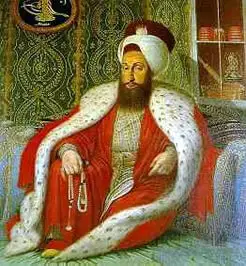A young person, full of new ideas and impatient for change.
Young turk
What's the meaning of the phrase 'Young turk'?
What's the origin of the phrase 'Young turk'?
The figurative expression ‘young turks’ meaning ‘the new breed, impatient for change’ began to be used in the early 20th century.
William Safire, in The new language of politics: an anecdotal dictionary of catchwords, slogans, and political usage, 1968, referred to a group of US politicians who, in 1929, were called the ‘Young Turks’:
These new Republican warriors were called the Young Turks, a band of about 20 who had mutinied against the feeble leadership of the Old Guard. For Senators they were young men (average age: 56).
Safire also included a quotation, which states that Winston Churchill used the phrase during the Bermuda Conference of 1953. Churchill digressed from the agenda to discuss imperialism with Dwight Eisenhower, expressing his doubts about the wisdom of self-government for peoples not yet ready for it. When the American President disagreed with a portion of the Prime Minister’s argument, Churchill smiled and said:
“You’re just like the Young Turks in my government.”
Neither the US Senate of 1929 nor the British government of 1953 contained anyone of Turkish nationality, so where did the expression come from? It could hardly be simpler. Unusually for a figurative expression the meaning is literal; the first ‘young turks’ were exactly that – young Turks.
Selim III was Sultan of the Ottoman Empire from 1789 to 1807. He made the first major attempts to modernize the army along European lines and to rejuvenate the Turkish empire. These reforms were supported by a band of youthful followers who favoured modernisation but opposed by the more conservative older generation. There are many newspaper reports from around that time that refer to the modernists as ‘young Turks’ in a purely literal sense, that is, they were young and they were Turkish. For example, this piece from The Salisbury and Winchester Journal, January 1828:
The young Turks, of all classes, are exercising themselves in the use of arms in the European manner. The enthusiasm for the Sultan has risen to the highest pitch.
This dispute rumbled on for over a century and eventually a Turkish nationalist party that supported the reformation of the absolute monarchy of the Ottoman Empire was formed and started the Turkish revolution of 1908. It was led by The Three Pashas – Mehmed Talaat (aged 34 in 1908), Ismail Enver (27) and Ahmed Djemal (36), who were widely known as the ‘Young Turks’. Soon after that and, as we have seen above, as early as 1929, any group of people passionate for change became known as ‘young turks’.
The history of “Young turk” in printed materials
Trend of young turk in printed material over time
Related phrases and meanings
Browse more Phrases
About the Author

Phrases & Meanings
A-Z
A B C D E F G H I J K L M N O P Q R S T UV W XYZ
Categories
American Animals Australian Bible Body Colour Conflict Death Devil Dogs Emotions Euphemism Family Fashion Food French Horses ‘Jack’ Luck Money Military Music Names Nature Nautical Numbers Politics Religion Shakespeare Stupidity Entertainment Weather Women Work
How did we do?
Have you spotted something that needs updated on this page? We review all feedback we receive to ensure that we provide the most accurate and up to date information on phrases.
